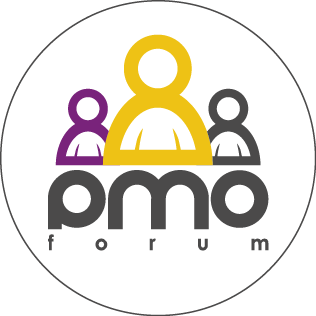Project Management South Africa (PMSA), with the support of Project Portfolio Office, a project and portfolio management (PPM) tool and solutions provider that is committed to growing the project management profession, has officially kicked off its Gauteng and Western Cape PMO Forums again for the first time since COVID-19 closed down face-to-face events in early 2020.
The virtual forum, which combined local and international members, saw recent PMO Global Alliance (PMOGA) 2021 Africa PMO Leader of the Year award winner Marion Baxter provide practical advice to the more than 100 PMO leaders and executives in attendance on being successful in the digital age.
Baxter, a seasoned PMO leader with solid experience in leading multiple strategic competency centres, is also head of Sanlam Group Technology’s (SGT) Project Management Office (PMO).
Key attributes for world-class PMO leaders
Baxter explained that there are several essential traits for successful PMO leaders: the consistent delivery of value that matches the business’ objectives; having the correct team behind you; and taking care of these team members.
“It is critical to stay close to the heart of the business and be aware of its challenges, opportunities and aspirations, promoting stakeholder-led decision making. Here a thorough understanding of the portfolio you’re delivering on is essential. Be clear on the outcome, but flexible on how you get there, and always promote innovation.
“Next, hiring the suitable resources and surrounding yourself with the right people is key, and even more so is ensuring that you look after the PMO team and empower members to make decisions. This team will help you to look after the business after all, alleviating the pressure on you as leader,” she added.
How does your PMO get away from an administrative perception and ensure a seat at the strategy table?
“If your PMO is not afforded the opportunity to sit with the business’ strategic leaders, the first question to ask is whether having a PMO is strictly necessary? Why not have an admin officer and manager in place instead?” Baxter asked.
Unfortunately, she said, PMOs that are seen only to have administrative capabilities are not considered as adding value and helping to deliver on the strategic goals of the business.
“It could be said that there is a disconnect between what the admin-focused PMO is doing – for instance too strong a focus on processes and practices, or making sure that they tick the governance and audit boxes – instead of what they should be doing, which is delivering value for the business.”
The first step to overcoming this view, in Baxter’s opinion, is to ascertain what problems the PMO should be addressing. “Is it going to tackle resourcing challenges? Demand or pipeline issues? Prioritisation or practices perhaps? Will it be a hub of talent? It is important to have the strategic conversation, underlining what the PMO is here for and what the value is that it can deliver.
“Without making these decisions you won’t be able to formulate a roadmap that will organically help you to evolve and deliver to the business. So, make sure that there’s buy-in from the business for your roadmap – that there’s skin in the game for your executives – and show the value of your roadmap on a quarterly basis.
“From the perspectives of delivery, people, processes and tooling, you must be realistic in showing where the PMO will be able to make a difference. Have conversations with the right people and ensure that you show them how their needs will be addressed. Don’t be hung up about governance – be hung up about outcomes and value.”
The impact of the pandemic on the PMO
All PMOs have weathered varying levels of strain over the past two years, needing to prove resilience time and again, Baxter stated. “For instance, today’s remote way of working has led to team members losing that direct connection with one another and a skewing of the work/life balance has seen many people suffering from burnout.”
She continued that while the Sanlam PMO’s productivity had increased by 200 percent over the period, there has been a serious focus on looking after team members to ensure that this is sustainable. “The pandemic accelerated many organisations’ digital transformation plans and this was no different in Sanlam’s case. In fact, one collaboration project was brought forward from our planned timeframe of one year to two weeks. We did manage to do this successfully by introducing new ways of working, but key to this achievement was networking with other teams and ensuring that we pulled in all the necessary resources. We also put a heavy focus on change management, expanding on these capabilities over this period to assist in delivering a lot of the big changes and to ensure that the changes made were accepted.
“The introduction of work/life balance processes and best practices, which were continually reinforced, and an employee wellness programme was key in that it helped to provide great support for our teams.”
Is it all about agile?
Many PMOs are being asked to deliver in a more agile or hybrid way and it can be difficult for some to make sense of this. And with so many delivery frameworks existing out there, Baxter was asked how a PMO should decide what the most suitable options are to deliver a specific project?
“A few years ago, it was said that there’s no longer any need for project managers or leaders, just scrum managers and product owners, and that the focus was no longer on projects, only delivery. While there is some truth to this, and every PMO should have an agile delivery culture, scaled agile can be big and disruptive.
“What we mustn’t lose sight of is that the programme in place has a vision that the team is delivering to, one that is aligned to the needs of the organisation. Businesses might love agile approaches as they can see the change happening quickly, but the project manager keeps the end-to-end project and product delivery going. Hence it is important to find the middle line and what will work for your organisation, delivering on goals in more of a hybrid form.”
PMOs starting out and moving forward
Baxter’s advice for companies just starting out with project management is that the PMO must be positioned as an integration hub, one that can help businesses that have felt the pain and need help to resolve those challenges.
“The starting point must be to do an as-is GAP analysis and see how value can be delivered without causing too much disruption within the company,” she recommended. “Establish why the PMO is needed and talk the business’ language – have the conversations and engagement with leadership. Grow your network and get support in establishing your project-oriented culture through communities like the PMO Forums, from a lessons learned perspective.
“Start small and evolve – practices, processes should grow with your business. You might not be receiving the budget to roll out a maturation plan or to organically improve practices and processes, but as you’re able to demonstrate bigger value and funds become available, they will be more likely to come your way.”
What does the future hold for PMOs?
According to Baxter, the future for PMOs is very positive both locally and at a global level. “But, as mentioned, you must secure the PMO’s position within the business, building yourself as the trusted brand of the organisation.
“Fortunately, there are platforms available for you to elevate what your PMO is doing, which can assist here. “For example, the South African PMO Awards gives recognition to those PMOs that deliver and add value continuously. This is important as we’re then able to draw on each other’s best practices, share knowledge and continuously learn, elevating ourselves,” she concludes.
PMO leaders and executives from Africa and beyond that would like to join our growing community of like-minded individuals committed to advancing the project management profession are welcome to sign up here.


